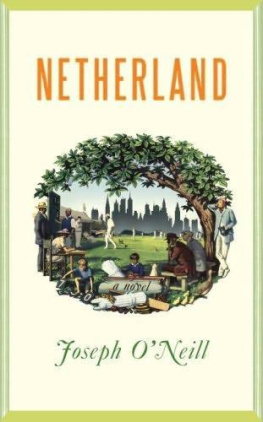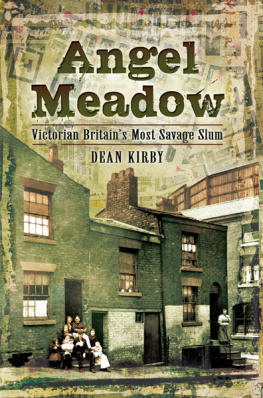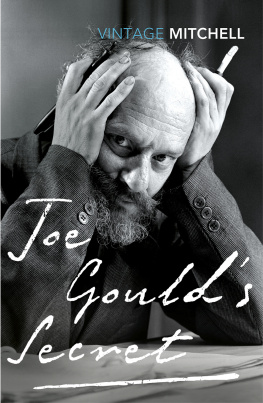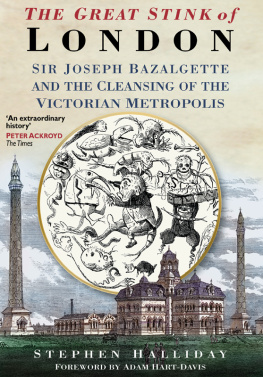The Secret
World of the
Victorian
Lodging House
With gratitude to Fiona Ashton for her
sharp eye and true ear.
The Secret
World of the
Victorian
Lodging House
Joseph ONeill
First published in Great Britain in 2014 by
Pen & Sword History
an imprint of
Pen & Sword Books Ltd
47 Church Street
Barnsley
South Yorkshire
S70 2AS
Copyright Joseph ONeill 2014
ISBN 978 1 78159 393 6
The right of Joseph ONeill to be identifed as the Author of this Work
has been asserted by him in accordance with the Copyright, Designs
and Patents Act 1988.
A CIP catalogue record for this book is available from the British
Library
All rights reserved. No part of this book may be reproduced or
transmitted in any form or by any means, electronic or mechanical
including photocopying, recording or by any information storage and
retrieval system, without permission from the Publisher in writing.
Typeset in Ehrhardt by
Mac Style, Bridlington, East Yorkshire
Printed and bound in the UK by CPI Group (UK) Ltd, Croydon,
CRO 4YY
Pen & Sword Books Ltd incorporates the imprints of Pen & Sword
Archaeology, Atlas, Aviation, Battleground, Discovery, Family History,
History, Maritime, Military, Naval, Politics, Railways, Select,
Transport, True Crime, and Fiction, Frontline Books, Leo Cooper,
Praetorian Press, Seaforth Publishing and Wharncliffe.
For a complete list of Pen & Sword titles please contact
PEN & SWORD BOOKS LIMITED
47 Church Street, Barnsley, South Yorkshire, S70 2AS, England
E-mail:
Website: www.pen-and-sword.co.uk
Preface
I jolted awake. In an instant I was at the window. A chill moon lit the backyard. But there was no movement, nothing amiss. What had woken me? Then the gate moved on its hinges, opened a few inches, then closed with a chug against the bricks. That was it the gate banging. I crossed the room, back to the bed, my feet cold on the linoleum. Then I heard it: a clatter of aluminium.
Now there was light under my door, feet on the stairs, my mothers voice near and my fathers further away. Then I was out on the stairs, my heart skittish to be up at this unknown hour, down the three fights of stairs, along the hall which was chill with the night air and running into my mothers back at the door of the kitchen. I pushed my head between her hip and the jamb of the door.
Jack lay amid the ruins of the table, its four legs like those of a stricken spider with its back broken and about him pans and sieves, pots, jars and ladles, once housed on the shelves he had brought cascading from the wall.
The demolition of the kitchen was never broached and after a while I began to think that I had imagined the whole thing. Circumstantial evidence, however, confrmed my recollection: a new deal table appeared in the kitchen the next day. Besides, Jack was a prodigious drinker, given to concluding his evenings in the most inhospitable of places. On one occasion he was found comatose with his back resting against the door of a telephone box and on another across the bonnet of an Austin A30. The kitchen incident was akin to the evening he embraced the motoring revolution.
In the following days and weeks the lodgers continued to sit around the walls of the living room waiting for their dinner while shielded from my view by their open newspapers, as close as Roman soldiers with their shields locked together in turtle formation. They read the Manchester Evening News, the Cork Weekly Examiner, the Irish Independent and the Western People, while Radio Eireann undulated in the background. On one occasion, irked by the bookish atmosphere, I took a poker from the fre and sought to obliterate Harold Macmillans moustache from the front page of the Inishowen Independent. In a furry of fames and fapping the room flled with smoke and the entire newspaper was consigned to the hearth. My fathers ire wilted in the face of the Inishowen mans indulgent laughter and some of the lodgers supported my actions, adding that burning is too good for that Macmillan.
As always, they forgave me. They continued to give me half-crowns on pay day and to take me to High Mass, when occasionally during the homily my guardian would step outside to suck deep on a Sweet Afton. Back home, I marvelled at their big boots encrusted in ochre clay, their trousers stiff with mud, the odour of wet wool and damp earth they exuded when recently home from work and the smell of brilliantine and stale Guinness from their blue Sunday suits. Almost weekly, one of them disappeared, off to Kilburn or Digbeth, to be replaced by another from Connemara or Kilkenny.
But most of all, I wondered about why these men lived with us and not in their own homes, with their own wives and children. Who were these fourteen men my mother fed in relays each evening?
When I asked, my father said they were lodgers, men who had left home to fnd work. For as long as I can remember they have fascinated me. Rootless, yet of a specifc time and place, they lived in a twilight place, neither at home nor settled away from home. Without the fnancial or social responsibilities of adults, in many ways they exemplifed the ideals of working class masculinity tough, strong and independent.
The lodging house I grew up in the 1950s was one of the last of its kind. Social and economic changes, developing patterns of migration and innovations in the building industry reduced the demand for the navvy. But the lodging house, the abode of Britains itinerant workers, has a long and fascinating history, little of which is available to the general reader. I hope this book, the result of a long-term interest, helps to fll that gap.
Joseph ONeill, 2014
Introduction: Without Seeming to Care for Each Other
And you did not notice, madam? The coroners face was puckered in an expression of outraged incredulity.
No, sir, replied Mary Wood, indignant at the suggestion that she was in any way blameworthy.
The mans face was black, madam. He was in a state of decomposition, said the coroner. You saw him on the Wednesday and Thursday subsequent to his retiring to bed and thought nothing of it? The coroner clearly found it impossible to imagine a situation in which a lodger could be dead in his bed for several days without his landlady noticing.
I have known some of my lodgers, Mary replied, who have been out upon the spree to lay in bed for three days together without a bit of a sup and then they have gone out to their work as well and as hearty as ever they was in their lives; I have known it often to have been done.
The coroner shook his grey head. And there were seven other beds in this room?
Yes, sir, Mary replied.
And how many lodgers occupied these beds?
Seventeen, she answered.
So, said the coroner, seventeen people shared a room with a putrefying corpse for three days and not one of them noticed anything amiss?
My lodgers comes and goes and minds their own business, said Mary with the manner of one bestowing the highest possible accolade. They goes in and out without seeming to care for each other.
The inquest into the death of 36-year-old James Parkinson, one of Londons many dealers in cats meat, in a common lodging house in West Street, Saffron Hill, in February 1834, allowed the middle classes to peep into the world of the lodging house. Their response, like that of the coroner, was appalled incredulity, with the story confrming their conviction that the common lodging house was the embodiment of evil and everything that threatened good order and human progress. The denizens of the common lodging house, it seemed, were barely human and lived in a manner that shamed a great nation.









